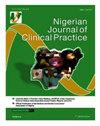褐藻糖胶通过调节不同细胞的死亡抑制前列腺癌的生长
IF 0.7
4区 医学
Q3 MEDICINE, GENERAL & INTERNAL
引用次数: 0
摘要
多西他赛(DOC)是治疗晚期转移性前列腺癌的主要化疗药物。多西他赛通过阻止细胞内微管的解聚,从而阻止细胞分裂,达到抗癌效果。然而,多西他赛的存活率较低,这促使研究人员寻找新型治疗药物。褐藻糖胶(FUC)是从褐藻中提取的硫酸化多糖。褐藻糖胶具有多种生物活性,是一种很有前景的抗癌药物。本研究通过分析不同的细胞死亡模式,研究了褐藻糖胶与多西他赛或不与多西他赛联合使用对前列腺癌的潜在抗肿瘤和预防作用。 研究在体内进行了六组(n = 8)试验:预防组(Pt)、预防后多西他赛组(Pt-D)、对照组、褐藻糖胶组(FUC)、多西他赛组(DOC)、FUC 和 DOC 组(FUC+DOC)。免疫组化染色法评估了肿瘤组织中与细胞凋亡、坏死和自噬相关的蛋白质表达。此外,还测定了肿瘤组织中与氧化应激相关的脂质过氧化反应、谷胱甘肽过氧化物酶和谷胱甘肽水平。 与对照组相比,药剂处理组显著诱导细胞凋亡、坏死和自噬。FUC和FUC+DOC处理组诱导的细胞凋亡更为明显。在所有处理组中,通过诱导 MLKL 蛋白的表达,坏死细胞的死亡大大增加。在 FUC、Pt 和 DOC 组中,LC3A/B 的表达明显增加。DOC、FUC+DOC和Pt-D处理导致Beclin-1表达量明显增加。氧化应激相关的MDA、GPX和GSH水平在FUC处理后明显下降。FUC 和 DOC 的抗肿瘤作用还体现在肿瘤体积的缩小上。 根据这项研究的结果,FUC 可在时间上和尺寸上抑制肿瘤生长,尤其是在预防性应用中。两个治疗组中的 FUC 和 FUC+DOC 组合均显示出抗肿瘤作用。研究结果表明,褐藻糖胶是一种很有前景的前列腺癌抗癌剂。褐藻糖胶可作为一种预防或治疗前列腺癌的药物。要全面阐明褐藻糖胶对转移性前列腺癌的作用机制,还需要进一步的研究。本文章由计算机程序翻译,如有差异,请以英文原文为准。
Fucoidan Inhibits Prostate Cancer Growth Through Modulation of Different Cell Deaths
Docetaxel (DOC) is the main chemotherapeutic agent for the treatment of advanced metastatic prostate cancer. Docetaxel shows anticancer effects by preventing the depolymerization of microtubules in the cell, therefore preventing cell division. However, the low survival effect of docetaxel has prompted researchers to search for novel therapeutic agents. Fucoidan (FUC) is a sulfated polysaccharide derived from brown algae. It has many bioactivities which makes fucoidan a promising anticancer agent. In this study, the potential anti-tumorigenic and preventive effects of fucoidan with or without docetaxel in prostate cancer were investigated by analyzing different cell death modalities.
The in-vivo six groups (n = 8) were conducted; preventive (Pt), docetaxel treated after preventive (Pt-D), control, fucoidan (FUC), docetaxel (DOC), and FUC and DOC (FUC+DOC) combination. Apoptotic, necroptotic, and autophagic cell death-related protein expressions were assessed in tumor tissues by using immunohistochemical staining. Oxidative stress-related lipid peroxidation, glutathione peroxidase, and glutathione levels were also determined in tumor tissues.
Although apoptotic, necroptotic, and autophagic cell deaths were significantly induced in agent-treated groups compared to the control. Apoptotic cell death was more significantly induced in FUC and FUC+DOC-treated groups. Necroptotic cell death was increased considerably by inducing MLKL protein expression in all treatment groups. In the FUC, Pt, and DOC groups, LC3A/B expressions were significantly increased. DOC, FUC+DOC, and Pt-D treatments caused a significant increase in Beclin-1 expression. Oxidative stress-related MDA, GPX, and GSH levels significantly decreased with FUC treatment. The anti-tumorigenic effects of FUC and DOC were also demonstrated through tumor size reduction.
According to the findings of this study, FUC inhibited tumor growth temporally and dimensionally, especially in preventive applications. FUC and FUC+DOC combinations in both treatment groups showed anti-tumorigenic effects. The results of this study suggest that fucoidan is a promising anticancer agent against prostate cancer. FUC can be considered as a preventive or treatment agent in prostate cancer therapy with DOC. Further studies are needed to fully elucidate the mechanism of action of fucoidan in metastatic prostate cancer.
求助全文
通过发布文献求助,成功后即可免费获取论文全文。
去求助
来源期刊

Nigerian Journal of Clinical Practice
MEDICINE, GENERAL & INTERNAL-
CiteScore
1.40
自引率
0.00%
发文量
275
审稿时长
4-8 weeks
期刊介绍:
The Nigerian Journal of Clinical Practice is a Monthly peer-reviewed international journal published by the Medical and Dental Consultants’ Association of Nigeria. The journal’s full text is available online at www.njcponline.com. The journal allows free access (Open Access) to its contents and permits authors to self-archive final accepted version of the articles on any OAI-compliant institutional / subject-based repository. The journal makes a token charge for submission, processing and publication of manuscripts including color reproduction of photographs.
 求助内容:
求助内容: 应助结果提醒方式:
应助结果提醒方式:


